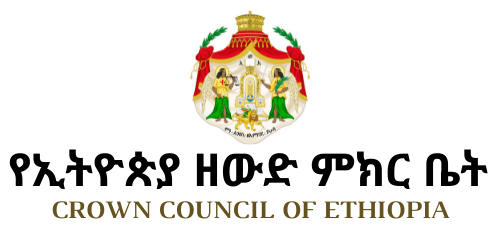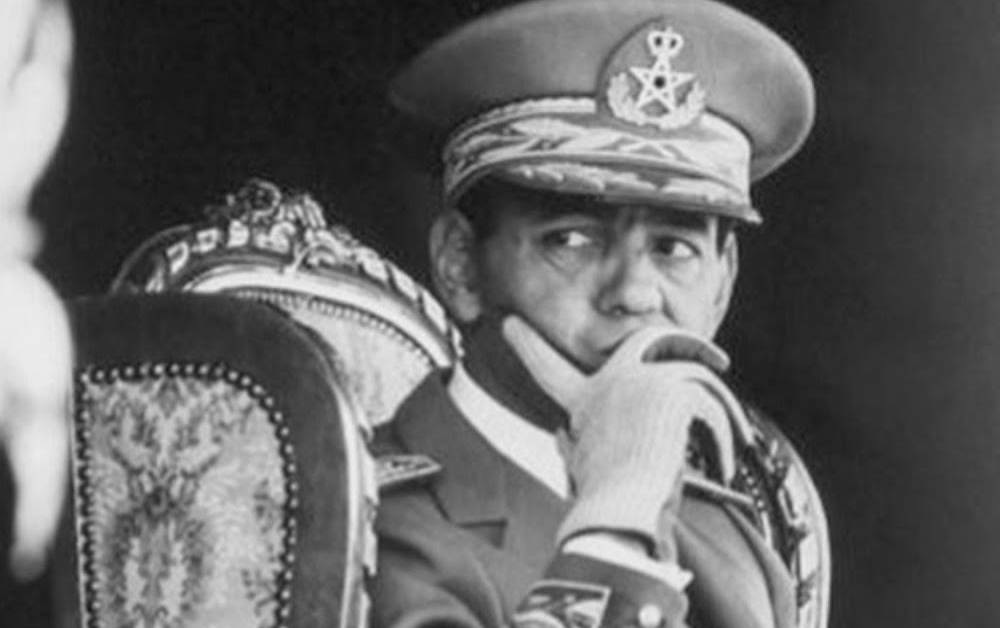The Ethiopian Crown Council today sent greetings to Ethiopians on the occasion of Inqutatash — Ethiopian New Year — and called on all Ethiopians to agree on an urgent period of respite from ethnic and communal conflict in the Ethiopian community of nations so that urgent issues of poverty, health-care, education and national unity could be addressed.
“Ethiopians have now endured more than two decades of hardship since the death of His Imperial Majesty Empror Haile Selassie I. We now must all work together to overcome all of the obstacles of war, natural disaster, poverty, inadequate education, disunity, and disease to reclaim our rightful place of health and happiness in the world,” the President of the Crown Council, Prince Ermias Sahle-Selassie Haile-Selassie, said in the New Year Greeting.
“It is not only possible for us to achieve victory over these hardships, it is essential. We have suffered for too long. We all know what we must do: we must work together,” Prince Ermias said. “We must have national healing within so that we can defend the threats from without.”
“Ethiopia remains under threat from many man-made problems, such as the ongoing war between Eritrea and Ethiopia, and fratricidal conflicts conducted by minority groups. We must not only deal with with these problems by demonstrating the mutual bonds which link all Ethiopian peoples, we must begin to address the underlying causes of the conflicts. The Administration must show faith in the Ethiopian peoples by encouraging expressions of unity and by encouraging cooperation and interaction among all the various peoples of Ethiopia, instead of by encouraging ethnic rivalry and separation. This would, more than anything else, create a sense of national purpose, and, indeed, have Ethiopians rallying around a productive and popular Government.”
“We can no longer afford to live in division and mutual suspicion,” the Crown Council statement said.
“It is at this time of renewal — this New Year — when Ethiopians must learn to respect and enjoy the greatness of each of the national peoples, each of the great religions of Ethiopia, and each of the great cultures and languages of our peoples,” Prince Ermias said. “The Crown and Crown Council of Ethiopia are the Crown and Crown Council of all Ethiopians, and represent the important symbols of Ethiopianness: unity, prosperity, security, and strength. And the Crown Council — the only legal and Constitutional body representing the Solomonic Crown of Ethiopia during the interregnum — will continue to work for national unity, national strength, for improved education and welfare, and for the perpetuation of the great Ethiopian culture,” Prince Ermias said.
The Ethiopian Crown Council today sent greetings to Ethiopians on the occasion of Inqutatash — Ethiopian New Year — and called on all Ethiopians to agree on an urgent period of respite from ethnic and communal conflict in the Ethiopian community of nations so that urgent issues of poverty, health-care, education and national unity could be addressed.
“Ethiopians have now endured more than two decades of hardship since the death of His Imperial Majesty Empror Haile Selassie I. We now must all work together to overcome all of the obstacles of war, natural disaster, poverty, inadequate education, disunity, and disease to reclaim our rightful place of health and happiness in the world,” the President of the Crown Council, Prince Ermias Sahle-Selassie Haile-Selassie, said in the New Year Greeting.
“It is not only possible for us to achieve victory over these hardships, it is essential. We have suffered for too long. We all know what we must do: we must work together,” Prince Ermias said. “We must have national healing within so that we can defend the threats from without.”
“Ethiopia remains under threat from many man-made problems, such as the ongoing war between Eritrea and Ethiopia, and fratricidal conflicts conducted by minority groups. We must not only deal with with these problems by demonstrating the mutual bonds which link all Ethiopian peoples, we must begin to address the underlying causes of the conflicts. The Administration must show faith in the Ethiopian peoples by encouraging expressions of unity and by encouraging cooperation and interaction among all the various peoples of Ethiopia, instead of by encouraging ethnic rivalry and separation. This would, more than anything else, create a sense of national purpose, and, indeed, have Ethiopians rallying around a productive and popular Government.”
“We can no longer afford to live in division and mutual suspicion,” the Crown Council statement said.
“It is at this time of renewal — this New Year — when Ethiopians must learn to respect and enjoy the greatness of each of the national peoples, each of the great religions of Ethiopia, and each of the great cultures and languages of our peoples,” Prince Ermias said. “The Crown and Crown Council of Ethiopia are the Crown and Crown Council of all Ethiopians, and represent the important symbols of Ethiopianness: unity, prosperity, security, and strength. And the Crown Council — the only legal and Constitutional body representing the Solomonic Crown of Ethiopia during the interregnum — will continue to work for national unity, national strength, for improved education and welfare, and for the perpetuation of the great Ethiopian culture,” Prince Ermias said.







